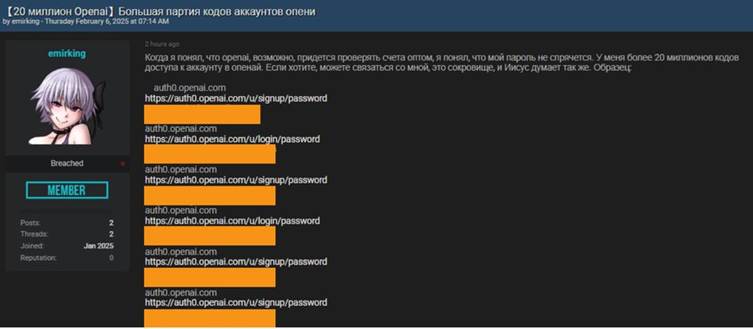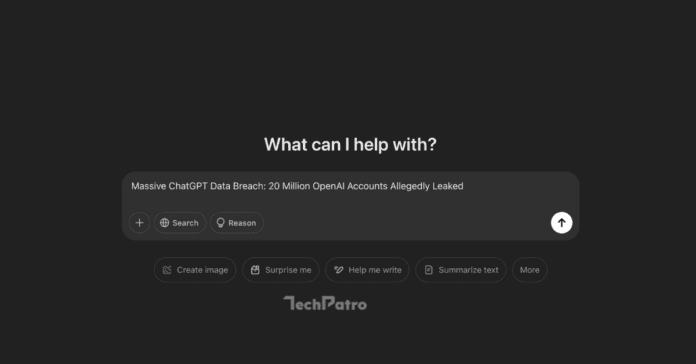A cybercriminal claimed, on Thursday (06), to be allegedly in possession of 20 million ChatGPT accounts, from the company OpenAI. The seller, probably Russian, made the offer in a well-known cybercriminal forum.
Identified as “emirking”, the attacker exhibited alleged samples of what was obtained after improper access. According to him, the action was carried out after he realized that his password was not secure with OpenAI.
“I have more than 20 million access codes for OpenAI accounts. If you want, you can contact me,” he wrote in Russian.

Despite the leak message, there are still details to be verified. In a previous analysis carried out by other users of the cybercriminal forum, the data sample did not deliver access to the ChatGPT of the leaked accounts. That’s exactly why a deeper analysis is still needed about all the material that is offered.
Potential Risks of the Alleged Data Leak
If the breach is confirmed, users of ChatGPT and OpenAI services could face several risks:
- Credential Stuffing Attacks: Hackers might use stolen passwords to gain access to other online accounts if users reuse credentials.
- Phishing Attacks: Cybercriminals could craft targeted phishing emails to deceive victims.
- Data Privacy Violations: Any sensitive information stored in ChatGPT conversations could be exposed.
- Unauthorized API Usage: Attackers may exploit compromised accounts to access OpenAI’s paid services fraudulently.
How to Protect Your OpenAI Account
To safeguard your ChatGPT account from cyber threats, follow these best practices:
- Enable Two-Factor Authentication (2FA): Adds an extra layer of security beyond passwords.
- Use Strong and Unique Passwords: Avoid reusing passwords across multiple sites.
- Monitor Account Activity: Regularly check for unauthorized logins.
- Be Wary of Phishing Emails: OpenAI will never ask for your credentials via email.
- Change Passwords Regularly: Update your credentials periodically to mitigate security risks.
Final Thoughts
While the legitimacy of the hacker’s claims is still under scrutiny, this incident highlights the importance of cybersecurity and password hygiene. Whether you use ChatGPT for work, research, or entertainment, securing your account should be a top priority.













